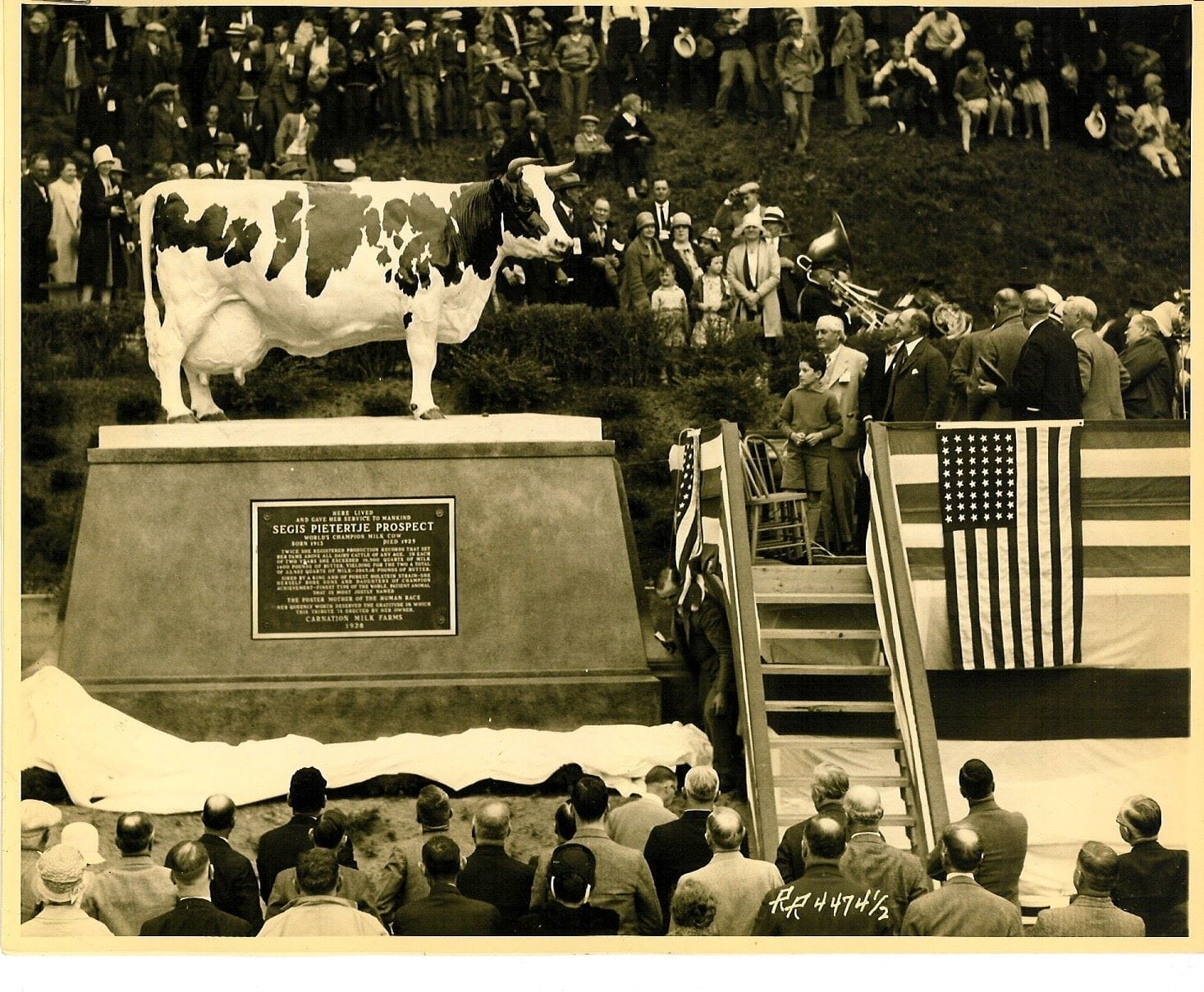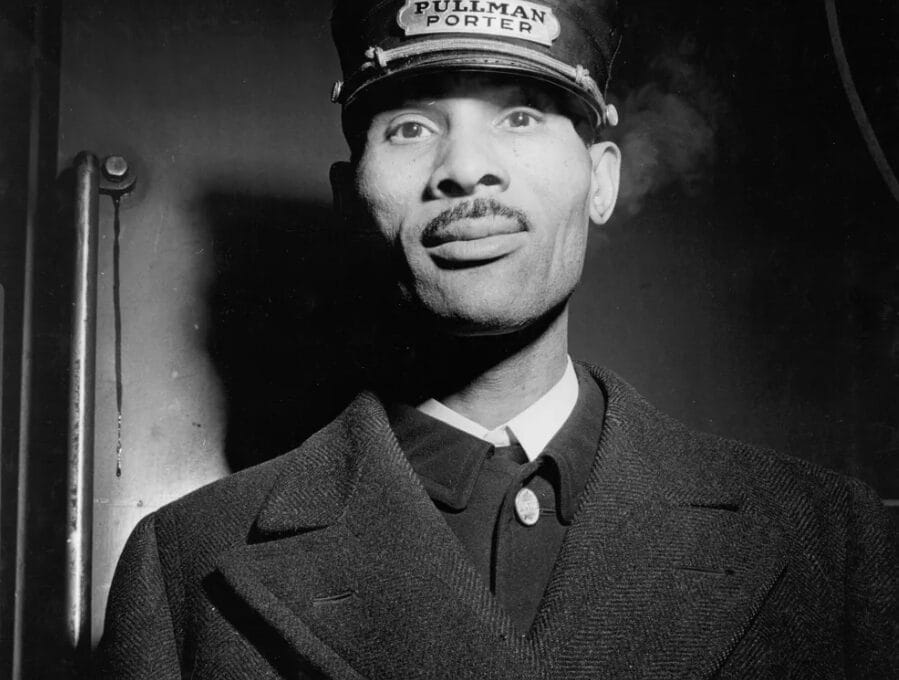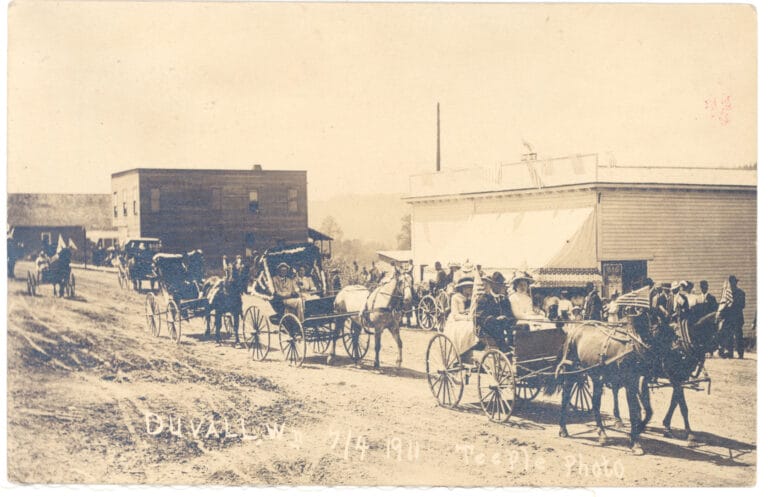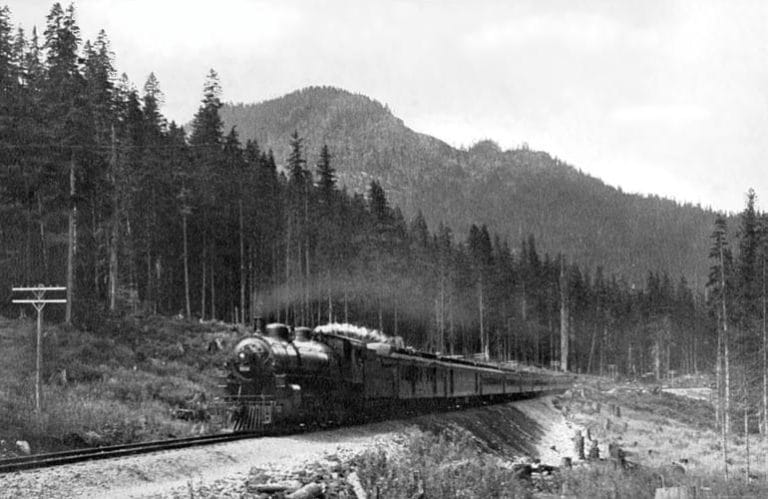Then and Now: Carnation Farms
Long before California adopted their slogan of “The Home of Happy Cows,” the Snoqualmie Valley’s Carnation Farm was internationally known as “The Home of the Contented Cows.”
Carnation Farms built their dairy operations around the concept of contented cows. It all began in 1908, when founder E.A. Stuart purchased the original 360 acres of farmland—sight unseen because of a tip from his friend, Sam Hill, that the railroad would soon connect to this part of the world. Stuart’s first task was to figure out how to get milk to market. You can read about that story in our companion blog. Stuart’s work not only revolutionized the way milk was distributed, but also fundamentally changed milk production, starting with the cows themselves.
Stuart approached the task of improving milk production scientifically and emotionally, embarking on a selective breeding program of Holstein cows which would dramatically increase milk production not only on the farm, but around the world. At the same time Stuart was increasingly paying attention to the bloodlines of his animals, he instituted a policy which would ensure the cows were happy as well as healthy, with the idea that cows which avoided stress and mistreatment would be able to produce more milk. This is where the trademark idea, “home of contented cows,” was born.
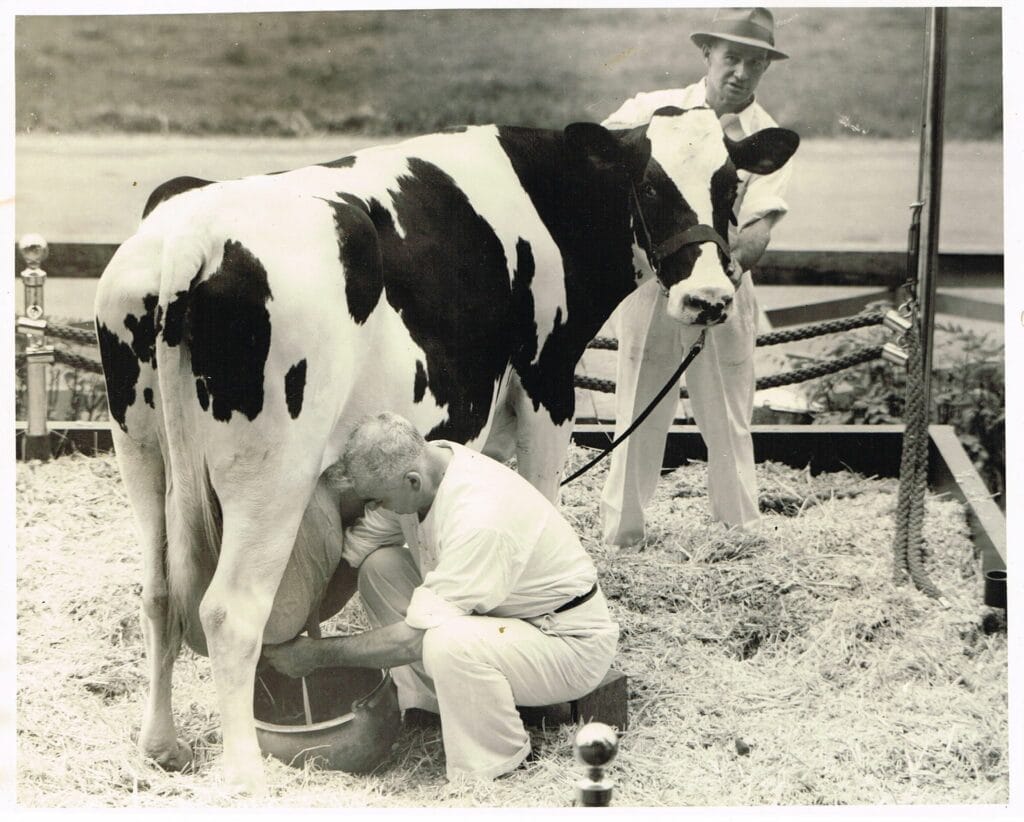
In the breezeway of the barn where many of the milking cows were housed, there remains to this day a sign which lays out guidelines for how to treat the cows:
“The RULE to be observed in this stable at all times, toward the cattle, young and old, is that of patience and kindness . . . .
Remember that this is the home of mothers. Treat each cow as a mother should be treated. The giving of milk is a function of motherhood; rough treatment lessens the flow. That injures me as well as the cow. Always keep these ideas in mind in dealing with my cattle.”
In fact, there was no bad language allowed around the Carnation herd, both at home and when the cows would occasionally travel for exhibitions.
Another way to encourage milk production and contented cows was to ensure that the best milk cows were paired with the best workers. This proved to be a winning combination in 1921 with a cow named Segis Pietertje Prospect, lovingly known as “Possum Sweetheart”, and a milker named Carl Gockerell. In 1900, the average yearly milk production for a cow was 1,500-1,900 pounds of milk per year. The combination of “Possum Sweetheart” and Gockrell resulted in a record-shattering 37,000 pounds of milk produced in one year. When “Possum Sweetheart” died, both Stuart and Gockrell were so deeply grieved that they constructed the world’s only monument to an individual cow—that is the cow statue that remains outside the farm today.
It wasn’t just a few record-setting cows which increased the fame and fortune of Carnation Farms. The foundation herd cultivated by Carnation became breeding stock the world over. This meant that across the world, dairy farmers were able to get more milk from fewer cows leading to more stable food security, reduced labor needs (fewer cows mean fewer four-times-per-day milkings), and decreased footprint and environmental impact per gallon of milk. The legacy Carnation cows can be seen in dairy bloodlines across the world, to this day.
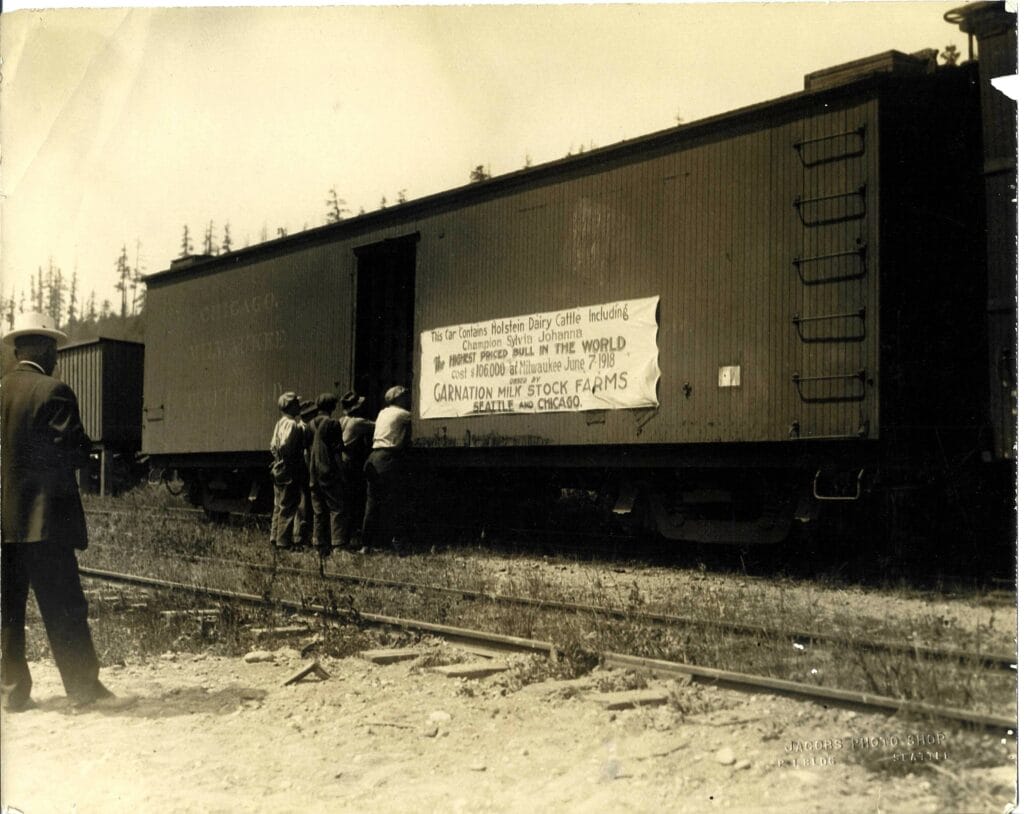
Since its purchase in 1908, the Carnation Farms site has gone through many transitions from Carnation Milk, to a Nestle meeting and training center, to Camp Korey. This past October marked a new start for the historic farm when Elbridge Stuart, the great-grandson of E.A. Stuart, founded a new non-profit called Carnation Farms. Carnation Farms aims to share the 818-acre organic farm with the community, to promote environmentally sustainable practices that connect people and communities to the land through experiential education, inspiring healthy and balanced lifestyles.
Carnation Farms offers many different programs including summer camps, workshops, family retreats, farm-to-table dinners, and more. Carnation Farms is also working to find innovative and creative ways to keep the Farm working at high capacity, from using Class C reclaimed water, to on-farm sourcing of certified organic produce for dinners and meals for campers. Carnation Farms, and its founding family, are also hoping to keep its rich history front and center. Carnation Farms offers behind-the-scenes history tours throughout the year, to sign up visit www.carnationfarms.org.


